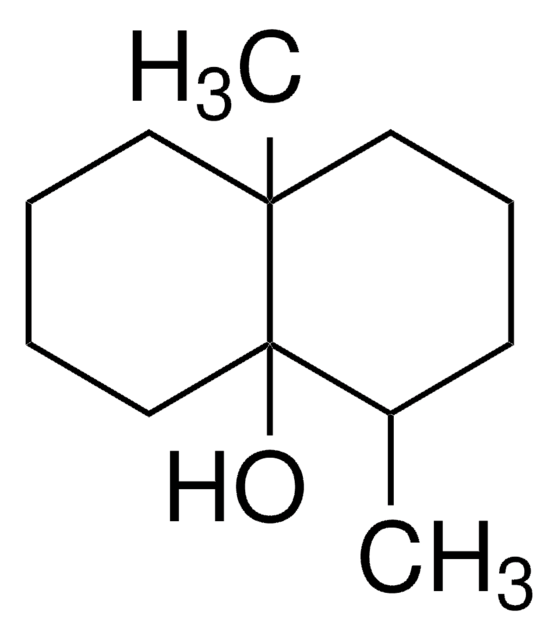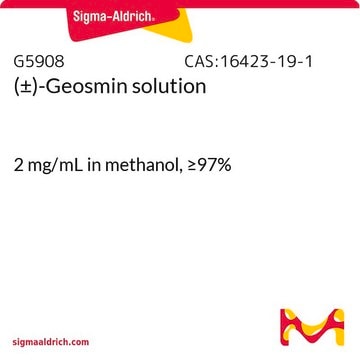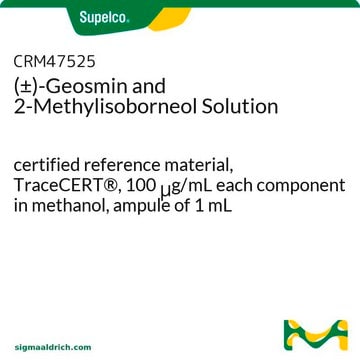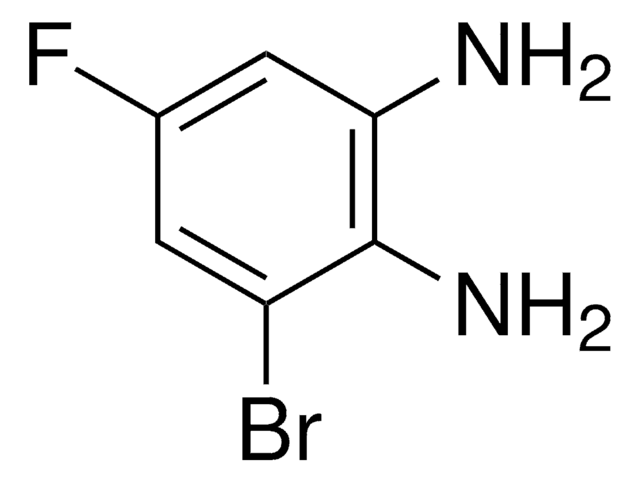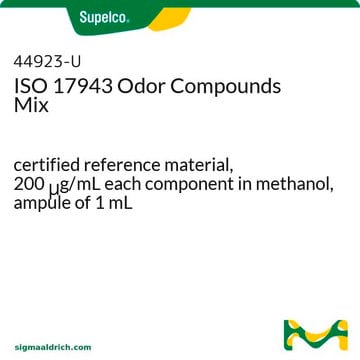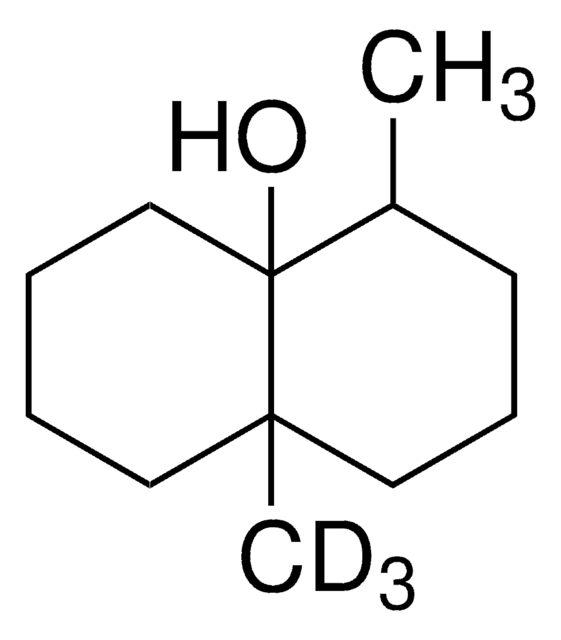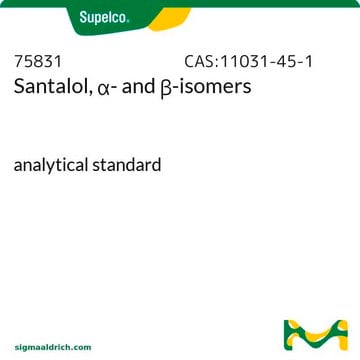743364
2-Methylisoborneol
≥98.0% (GC)
Synonym(s):
exo-1,2,7,7-Tetramethylbicyclo[2.2.1]heptan-2-ol
Sign Into View Organizational & Contract Pricing
All Photos(1)
About This Item
Empirical Formula (Hill Notation):
C11H20O
CAS Number:
Molecular Weight:
168.28
MDL number:
UNSPSC Code:
12352100
PubChem Substance ID:
NACRES:
NA.22
Recommended Products
Quality Level
Assay
≥98.0% (GC)
form
solid
functional group
hydroxyl
InChI
1S/C11H20O/c1-9(2)8-5-6-10(9,3)11(4,12)7-8/h8,12H,5-7H2,1-4H3/t8-,10-,11-/m1/s1
InChI key
LFYXNXGVLGKVCJ-FBIMIBRVSA-N
Application
- Odor compound prioritization in water: A study employed machine learning models combined with non-target analysis to prioritize odorous compounds like 2-Methylisoborneol in surface water, enhancing the effectiveness of environmental monitoring and treatment strategies (Huang et al., 2024).
- Water treatment with carbon materials: The study explored the use of Spirulina-based carbon materials as adsorbents for removing 2-Methylisoborneol from drinking water, also assessing the cyto-genotoxic effects, thus contributing to safer and more effective water treatment solutions (Antonopoulou et al., 2024).
- Quantification in aquaculture: Improved methods for quantifying 2-Methylisoborneol in farmed fish were developed using stable isotope dilution gas chromatography-mass spectrometry, facilitating better management of water quality in aquaculture environments (Dupre et al., 2024).
Packaging
Bottomless glass bottle. Contents are inside inserted fused cone.
Signal Word
Danger
Hazard Statements
Precautionary Statements
Hazard Classifications
Flam. Sol. 1 - Skin Irrit. 2
Storage Class Code
4.1B - Flammable solid hazardous materials
WGK
WGK 3
Flash Point(F)
Not applicable
Flash Point(C)
Not applicable
Choose from one of the most recent versions:
Already Own This Product?
Find documentation for the products that you have recently purchased in the Document Library.
Customers Also Viewed
A detailed view of 2-methylisoborneol biosynthesis.
Nelson L Brock et al.
Angewandte Chemie (International ed. in English), 52(7), 2100-2104 (2013-01-15)
Zonglai Li et al.
Water research, 46(16), 5165-5173 (2012-07-24)
Geosmin and 2-methylisoborneol (MIB) related odor events caused by cyanobacteria have been a very common problem to water supply. This paper investigated the effects of temperature (18 and 25 °C) and light intensity (10 and 100 μmol photons m(-2) s(-1))
Mustafa Köksal et al.
Biochemistry, 51(14), 3011-3020 (2012-03-30)
The crystal structure of 2-methylisoborneol synthase (MIBS) from Streptomyces coelicolor A3(2) has been determined in complex with substrate analogues geranyl-S-thiolodiphosphate and 2-fluorogeranyl diphosphate at 1.80 and 1.95 Å resolution, respectively. This terpenoid cyclase catalyzes the cyclization of the naturally occurring
Fei Zhong et al.
Water research, 45(19), 6479-6488 (2011-10-18)
An exploratory study on the management of undesirable cyanobacteria blooms with respect to off-flavor problems using an integrated vertical-flow constructed wetland (CW) was performed at a small commercial-scale channel catfish farm from 2004 to 2007. The results of the three-year
Yoshihiko Matsui et al.
Water research, 47(8), 2873-2880 (2013-03-27)
2-Methylisoborneol (MIB) and geosmin are naturally occurring compounds responsible for musty-earthy taste and odor in public drinking-water supplies, a severe problem faced by many utilities throughout the world. In this study, we investigated adsorptive removal of these compounds by superfine
Our team of scientists has experience in all areas of research including Life Science, Material Science, Chemical Synthesis, Chromatography, Analytical and many others.
Contact Technical Service